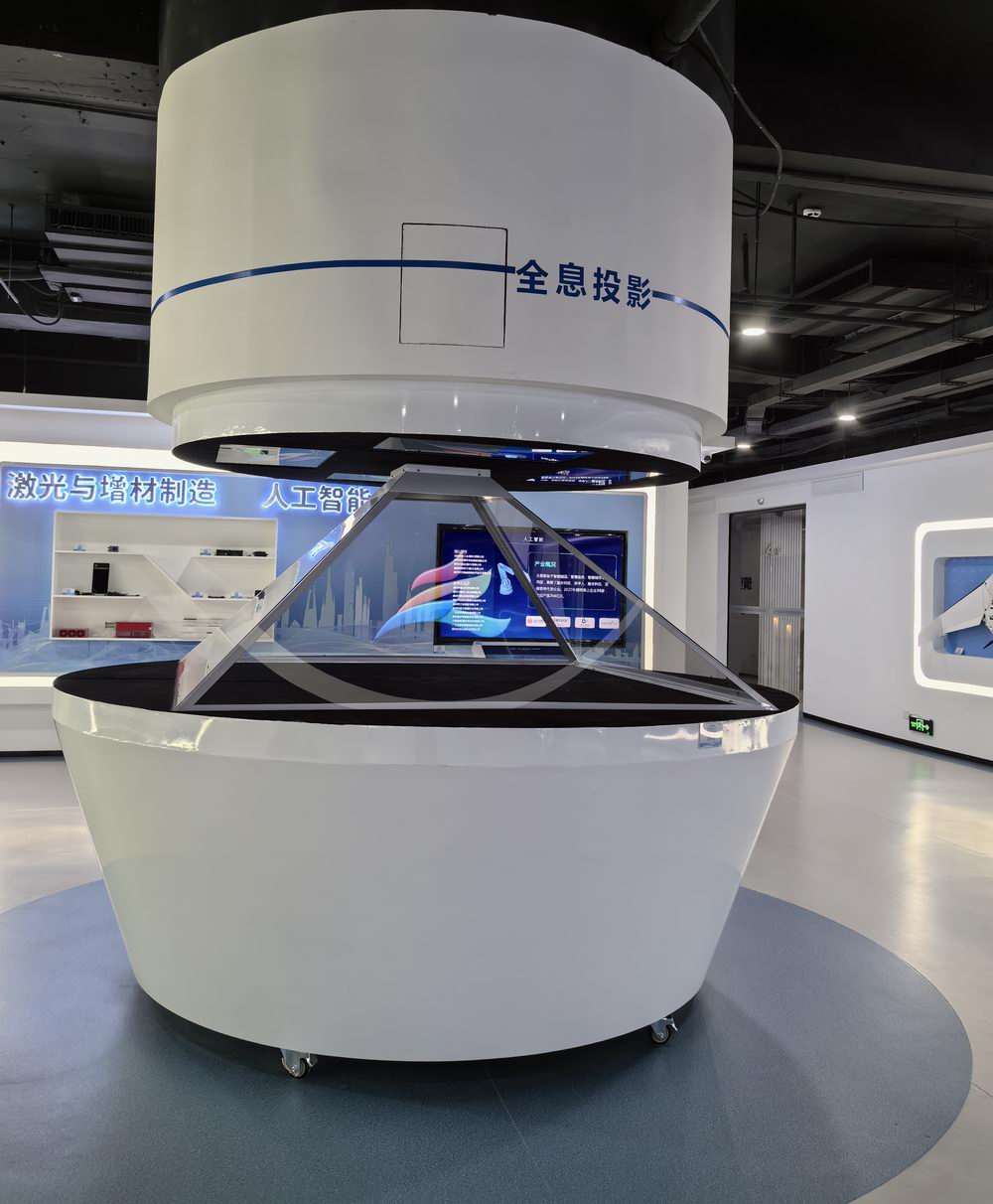The Role of Clusters in Enhancing Industry Competitiveness

Industry clusters play a pivotal role in enhancing competitiveness by fostering productivity and innovation. These clusters, such as the electronic information industry cluster, create an environment where businesses thrive through collaboration and shared resources. Companies within a cluster benefit from increased productivity due to proximity to suppliers and partners. This closeness encourages rapid prototyping and product innovation. Additionally, clusters stimulate the formation of new businesses, driving the pace of innovation. The integration of industrial clusters promotes knowledge spillovers, leading to competitive success. In essence, clusters serve as critical masses of linked industries and institutions, propelling economic growth.
Understanding Industry Clusters
Definition and Characteristics
What is an Industry Cluster?
An industry cluster represents a geographic concentration of interconnected businesses, suppliers, and associated institutions in a particular field. These clusters often include companies that compete but also collaborate to drive innovation and economic growth. The electronic information industry cluster exemplifies this concept by bringing together firms that specialize in electronic products and services. This proximity allows for efficient communication and collaboration, leading to rapid advancements and competitive advantages.
Key Features of Successful Clusters
Successful industry clusters share several key features. First, they possess a robust network of suppliers and service providers that support the core businesses. This network facilitates the flow of goods, services, and information, enhancing productivity. Second, clusters benefit from a skilled workforce that is attracted to the region due to the concentration of opportunities. Third, they foster an environment of innovation through collaboration among businesses, research institutions, and government entities. Lastly, successful clusters often have strong leadership and governance structures that guide their development and ensure sustainability.
Examples of Prominent Clusters
Silicon Valley as a Model
Silicon Valley stands as a quintessential example of a successful industry cluster. Located in California, it serves as a hub for technology and innovation. The region's success stems from its ability to attract top talent and foster a culture of entrepreneurship. Companies in Silicon Valley benefit from close proximity to venture capital firms, research institutions, and a network of suppliers. This environment encourages rapid prototyping and product development, making Silicon Valley a global leader in technology.
Zhongkai High Tech Zone's Role in the Electronic Information Industry
Zhongkai High Tech Zone plays a pivotal role in the electronic information industry. Situated in Huizhou, this zone provides a supportive environment for businesses specializing in electronic products. The National Foreign Trade Transformation and Upgrading Base (Electronic Information) Cloud Platform within Zhongkai High Tech Zone offers essential resources and services to enterprises. This platform facilitates knowledge sharing, skill development, and access to strategic resources. By integrating supply chains and fostering collaboration, Zhongkai High Tech Zone enhances the competitiveness of the electronic information industry cluster. The zone's efforts contribute to substantial productivity gains and innovation, positioning it as a key player in the global market.
How Clusters Enhance Productivity
Shared Resources and Infrastructure
Clusters significantly boost productivity by providing access to shared resources and infrastructure. Businesses within a cluster benefit from a network of specialized suppliers and services. This network ensures that companies can quickly obtain the materials and expertise they need. For instance, firms in the electronic information industry cluster can access cutting-edge technology and services, which enhances their operational efficiency.
Access to Specialized Suppliers and Services
Companies in clusters enjoy the advantage of having specialized suppliers nearby. These suppliers offer tailored products and services that meet the specific needs of the industry. This proximity reduces lead times and improves the quality of inputs. As a result, businesses can focus on their core competencies and innovate more effectively.
Economies of Scale and Reduced Costs
Clusters also enable companies to achieve economies of scale. By sharing infrastructure and resources, firms can lower their operational costs. This cost reduction allows them to invest more in research and development, leading to further innovation. The Zhongkai High Tech Zone exemplifies this by providing a cloud platform that supports enterprises in reducing costs and enhancing productivity.
Workforce and Talent Pool
A robust workforce is crucial for any industry cluster. Clusters attract and retain skilled workers by offering numerous opportunities for career growth and development. This concentration of talent fosters a competitive environment where businesses can thrive.
Attraction and Retention of Skilled Workers
Clusters draw skilled workers due to the abundance of job opportunities and professional growth prospects. Workers are more likely to stay in a region where they can advance their careers. This stability benefits companies as they can rely on a consistent pool of talent to drive their operations.
Knowledge Sharing and Skill Development
Clusters promote knowledge sharing and skill development among workers. Employees in clusters have access to training programs and workshops that enhance their skills. This continuous learning environment encourages innovation and creativity. The Zhongkai High Tech Zone supports this by offering resources and platforms for skill development, ensuring that the workforce remains competitive and capable of driving industry growth.
Driving Innovation Through Clusters
Collaborative Research and Development
Clusters drive innovation by fostering collaborative research and development. Companies and institutions within a cluster often form partnerships to share knowledge and resources. This collaboration accelerates the development of new technologies and products.
Partnerships Between Companies and Institutions
Partnerships between companies and institutions play a crucial role in driving innovation. Businesses collaborate with universities and research centers to access cutting-edge research and expertise. This cooperation leads to the creation of innovative products and services. For instance, firms in the electronic information industry cluster work closely with academic institutions to develop advanced technologies. These partnerships enhance the cluster's competitiveness by ensuring a steady flow of new ideas and innovations.
Innovation Hubs and Incubators
The Zhongkai High Tech Zone exemplifies this by offering a cloud platform that supports startups in the electronic information industry. Zhongkai High Tech Zone provides access to strategic resources and facilitates collaboration, enhancing the cluster's overall innovation capacity.
Stimulating New Business Formation
Clusters stimulate the formation of new businesses by providing a supportive environment for startups and entrepreneurs. The concentration of resources and expertise within a cluster encourages the development of new ventures.
Support for Startups and Entrepreneurs
The Zhongkai High Tech Zone supports startups by offering a cloud platform that provides essential resources and services. This platform helps entrepreneurs navigate the challenges of starting a new business, ensuring their success within the cluster.
Access to Funding and Investment
Access to funding and investment is crucial for new business formation. Clusters attract venture capital firms and investors who are eager to support innovative ventures. This access to capital enables startups to develop their ideas and bring them to market. The Zhongkai High Tech Zone facilitates access to funding through its cloud platform, which connects entrepreneurs with potential investors. This support enhances the cluster's competitiveness by ensuring a steady stream of new businesses and innovations.
The Importance of Proximity in Clusters
Geographic Proximity
Benefits of Being Close to Partners and Competitors
For instance, firms in the Zhongkai High Tech Zone benefit from being near each other, which enhances their ability to share resources and expertise.
Local Market Insights and Opportunities
Being close to local markets provides companies with valuable insights and opportunities. Businesses can better understand customer needs and preferences, allowing them to tailor their products and services accordingly. In the Zhongkai High Tech Zone, companies gain access to local market trends and consumer behavior, enabling them to make informed decisions. This knowledge helps businesses stay competitive and responsive to market demands.
Cultural and Institutional Proximity
Shared Values and Business Practices
Cultural proximity within clusters promotes shared values and business practices. Companies in the same region often have similar cultural backgrounds, which facilitates communication and collaboration. This shared culture fosters trust and cooperation among businesses, leading to successful partnerships. In the Zhongkai High Tech Zone, companies benefit from a common understanding of business practices, which enhances their ability to work together effectively.
Supportive Regulatory and Policy Environment
In the Zhongkai High Tech Zone, the government provides a supportive framework that encourages entrepreneurship and investment.
Industry clusters, like the electronic information industry cluster, offer a competitive edge by leveraging local knowledge and fostering strong relationships. They motivate businesses to innovate and grow. The Zhongkai High Tech Zone's cloud platform plays a crucial role in this ecosystem. It supports enterprises by providing essential resources and facilitating collaboration. This platform enhances productivity and innovation, ensuring sustained competitiveness. Clusters drive economic growth by creating environments where businesses can thrive, innovate, and maintain their competitive advantage in the global market.
See Also
Zhongkai High-tech Zone: Enhancing Industrial Cluster Development
The Growth of Industry Clusters in Zhongkai High-tech Zone
Huizhou High-tech Zone: Driving Forces Behind Industrial Expansion
A Deep Dive into Huizhou's Electronic Information Sector
Huizhou Zhongkai High-tech Zone: Elevating Global Electronic Information Edge
Zhongkai High tech Zone National foreign trade transformation and Upgradi Base(Electronic Information)Cloud Platform.
Address: Zhongkai High-tech Zone,Huizhou City ,Guangdong,China
E-mail: huizhoueii@163.com 13510001271@163.com
Tel: +86-0752-3279220 Mobile: +86-13510001271


